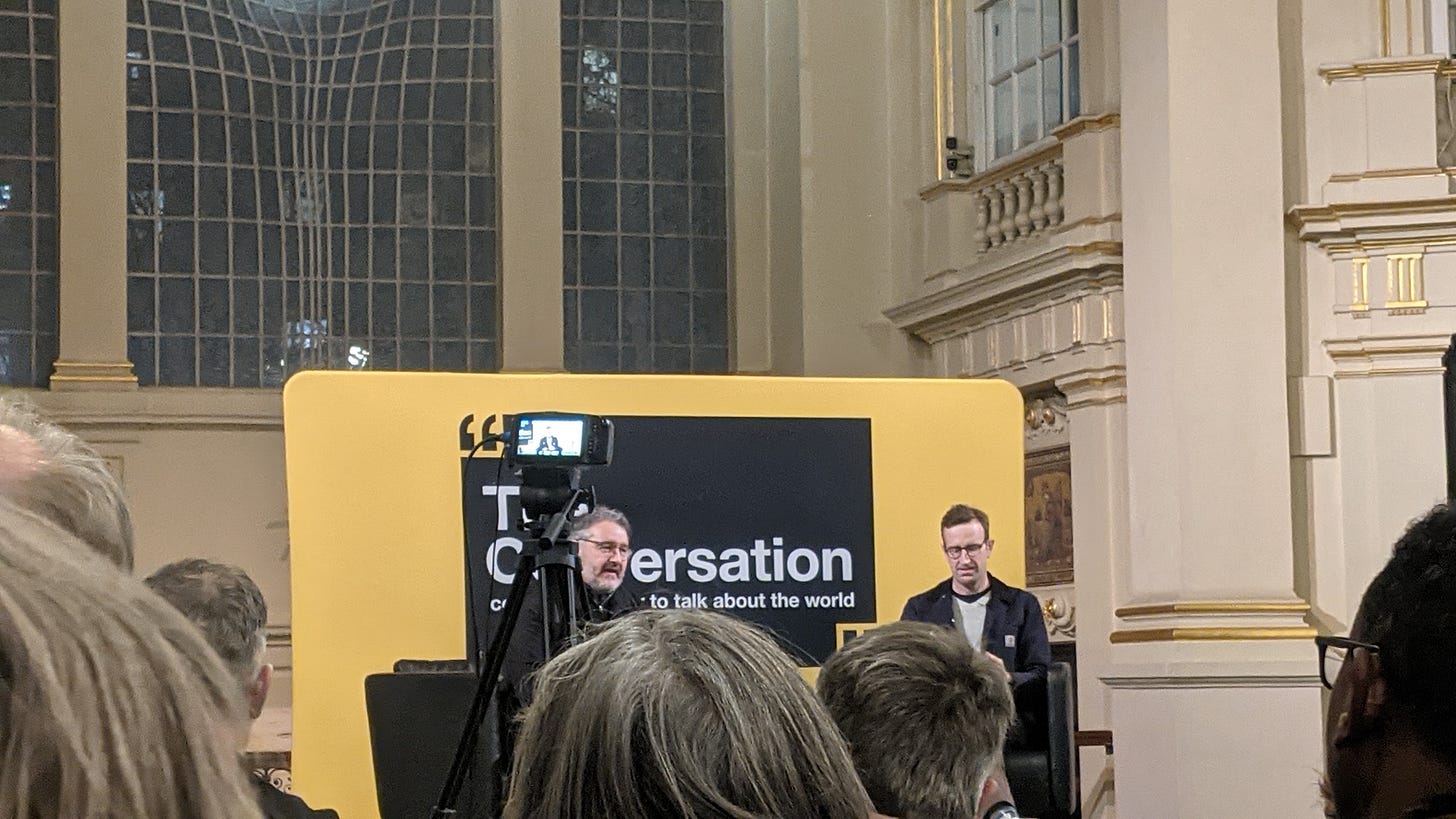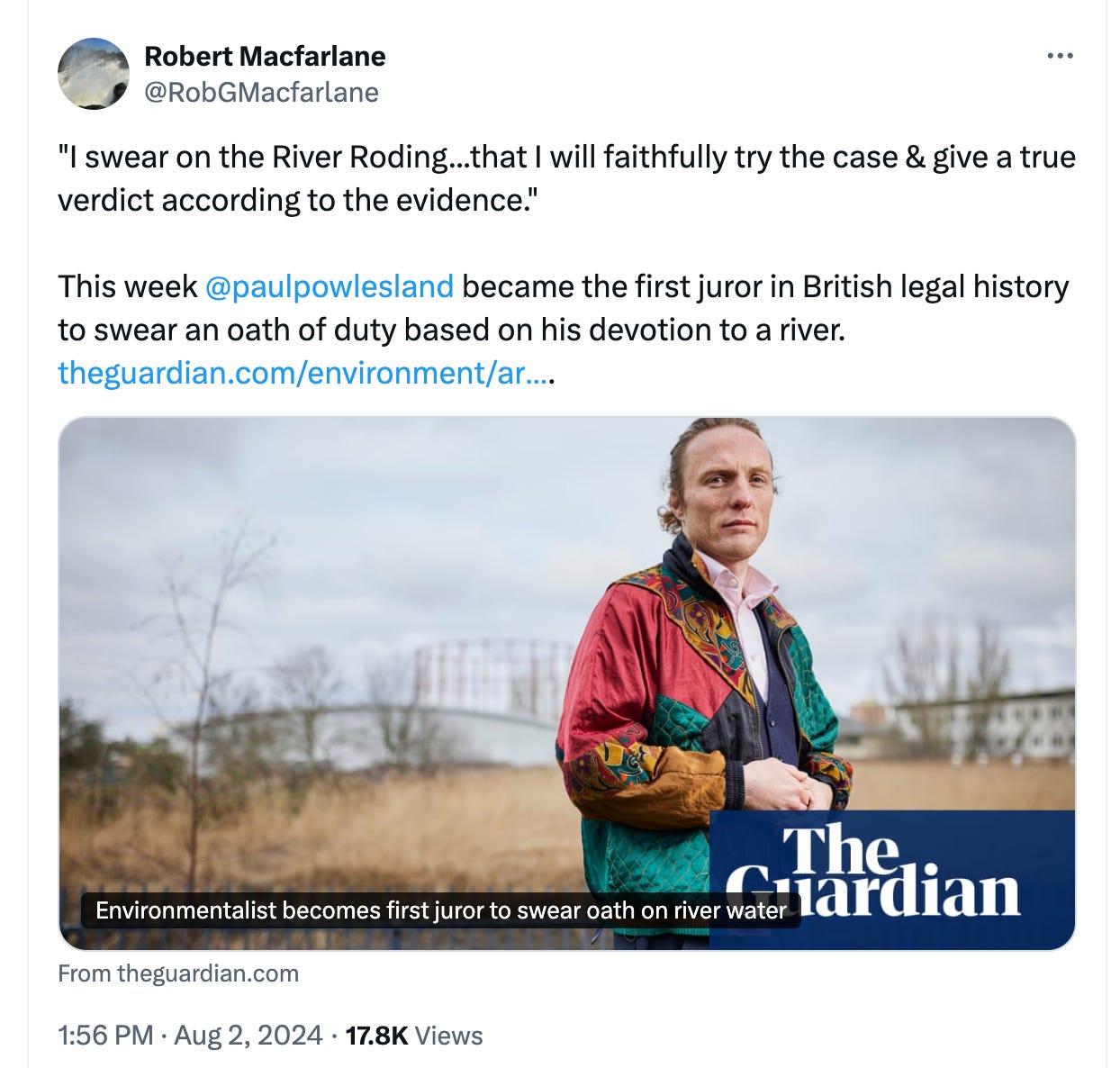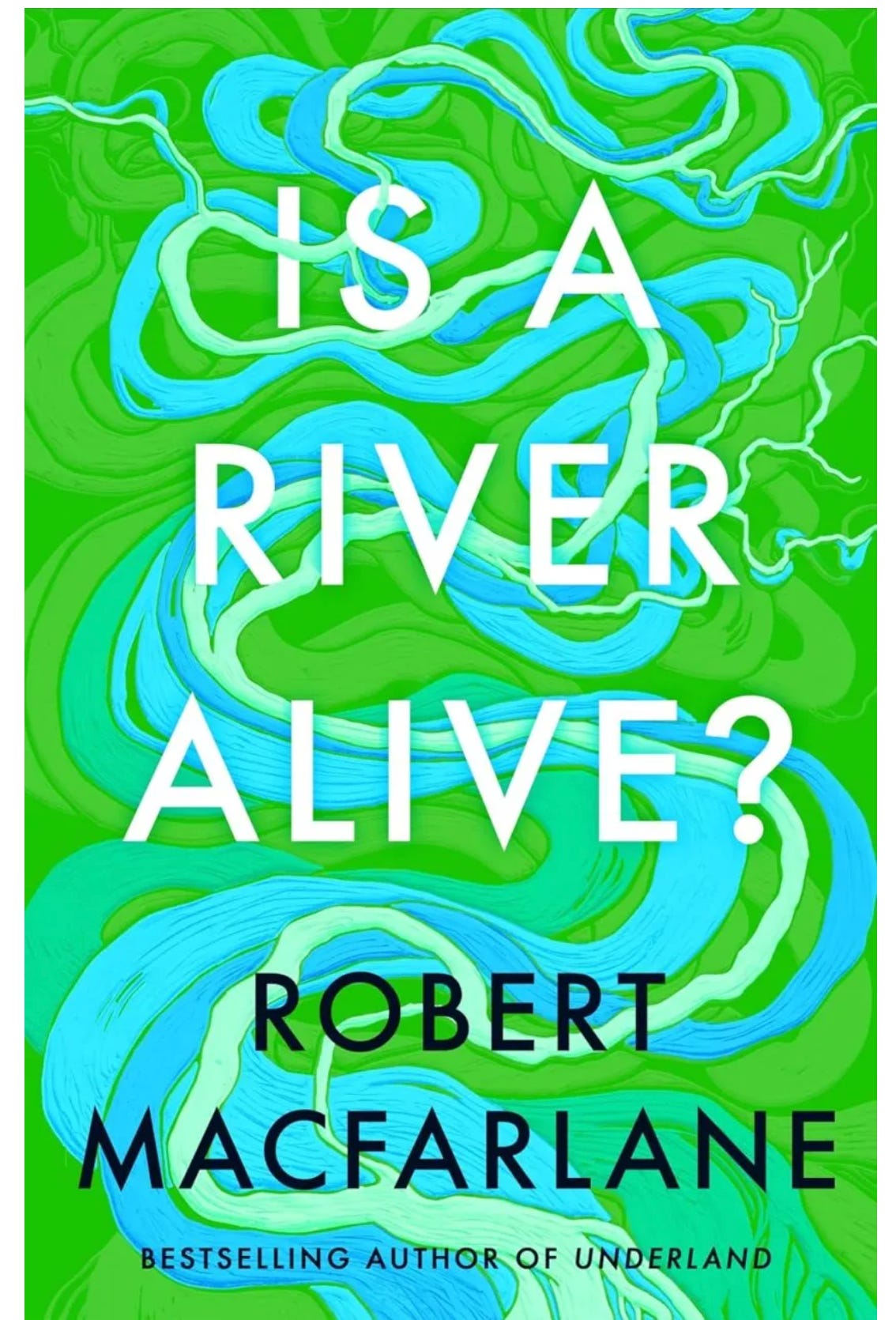Is the river you paddleboard on alive?
The challenge from living world writer Robert Macfarlane, posed in his new book IS A RIVER ALIVE?, is to be able to answer "Who are your waters?"

Author and composer Robert Macfarlane’s wrist is covered in string and rag jewellery. Think Taylor Swift friendship bracelets, but these are memories of the rivers he loves.
The raggedy red strip of cloth is from the long-suffering River Roding, though this is also a river which has one of the best guardians in Paul Powlesland who became the first juror in Britain to sear an oath of duty based on his devotion to a river. (See pic above).
If you haven’t yet heard Robert Macfarlane speak, listened to one of his audiobooks (eg, The Lost Words, The Old Ways, Underland, Landmarks) or read his amazing exploration of the living world then you are in for a treat. Because on 1 May his newest book, Is A River Alive, is published and it takes a very critical look at the state of the world’s rivers.
As paddleboarders know, not one single river in the UK escapes being polluted.
But judging by the talk Robert Macfarlane gave in central London at The Conversation, on 28 January, facilitated by the wise questions of former Booker Prize chair and Hay Festival director Peter Florence, all us water lovers are in for a chance to radically rethink how we refer to living rivers.
Online is a summary of his new book:
At its heart is a single, transformative idea: that rivers are not mere matter for human use, but living beings – who should be recognized as such in both imagination and law. Is a River Alive? takes the reader on an exhilarating exploration of the past, present and futures of this ancient, urgent concept.
The book flows first to northern Ecuador, where a miraculous cloud-forest and its rivers are threatened by goldmining. Then, to the wounded rivers, creeks and lagoons of southern India, where a desperate battle to save the lives of these waterbodies is under way. And finally, to north-eastern Quebec, where a spectacular wild river – the Mutehekau or Magpie – is being defended from death by damming in a river-rights campaign. At once Macfarlane's most personal and most political book to date, Is a River Alive? will open hearts, spark debates and lead us to the revelation that our fate flows with that of rivers – and always has.
The idea of asking “Who are your waters?” is borrowed from a Maori question. Robert calls it the watershed experiment. After his talk at St Martin in the Fields church, just off Trafalgar Square, he invited the audience to share their river watershed from source to sea with him, with others.
Who are your waters?
Can you do this? Pick a river that you know well and then take it from source to sea. I tried with the Ash, flowing near where I grew up, but couldn’t get very far at all. The River Lee I’ve walked alongside from her source in Luton (percolating through the chalky Chiltern Hills) on to Trinity Bouy Wharf and into the Thames then out into the Thames Estuary and on to the North Sea. I’ve also paddleboarded the middle stretch of the Lee a few times, endlessly surprised by how much the river changes depending on the season.
But the water I know well is Regent’s Canal and I’m not sure how alive this purpose built waterway is to Robert Macfarlane.
So here’s your challenge? “Who are your waters?” Note the pronoun is who NOT which. I think this grammar change is a lovely new development from creatives like Robert Macfarlane who wish to give nature a bigger voice, instead of just watching it being used and abused by a neo-liberal system that prioritises growth at the expense of the natural world (aka “resources”).
Did you know?
You can advance order Is a River Alive? It’s hardback, published by Hamish Hamilton and costs £25. See this link.
To go to one of the hour long The Conversation sessions held on Tuesday evenings at St Martin-in-th-Fields see https://www.stmartin-in-the-fields.org/the-conversation/



